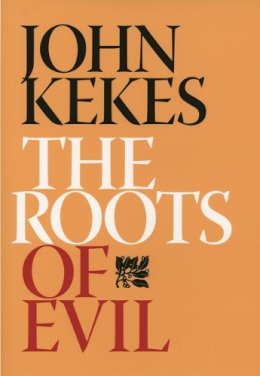
"Evil is the most serious of our moral problems. All over the world cruelty, greed, prejudice, and fanaticism ruin the lives of countless victims. Outrage provokes outrage. Millions nurture seething hatred of real or imagined enemies, revealing savage and destructive tendencies in human nature. Understanding this challenges our optimistic illusions about the effectiveness of reason and morality in bettering human lives. But abandoning these illusions is vitally important because they are obstacles to countering the threat of evil. The aim of this book is to explain why people act in these ways and what can be done about it."—John KekesThe first part of this book is a detailed discussion of six horrible cases of evil: the Albigensian Crusade of about 1210; Robespierre's Terror of 1793–94; Franz Stangl, who commanded a Nazi death camp in 1943–44; the 1969 murders committed by Charles Manson and his "family"; the "dirty war" conducted by the Argentinean military dictatorship of the late 1970s; and the activities of a psychopath named John Allen, who recorded reminiscences in 1975. John Kekes includes these examples not out of sensationalism, but rather to underline the need to hold vividly in our minds just what evil is. The second part shows why, in Kekes's view, explanations of evil inspired by Christianity and the Enlightenment fail to account for these cases and then provides an original explanation of evil in general and of these instances of it in particular.
Product Details
About John Kekes
Reviews for The Roots of Evil
First Things
The principal value of The Roots of Evil is that the author squarely faces the challenge of evil, a task of no small importance when Islamofascism and much else are testing the mettle of the West. While some obsess over the 'root causes' of the appalling things people do to one another, Kekes reminds us that evil actions find their origin in the individual. His book closes with some sensible if currently unfashionable recommendations for coping with evil: attending to its internal conditions by exposing people to the humanities and attending to its external conditions by a firm commitment to punishment. Indeed, the book contains much by way of sturdy good sense.
The New Criterion
This is an interesting, systematic, nondogmatic, and informed attempt to make sense of evil on secular grounds.
Times Literary Supplement
